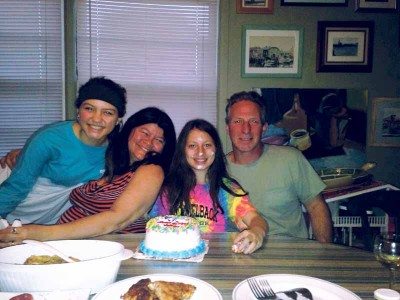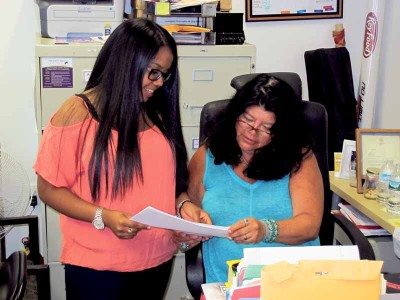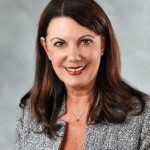
Sometimes it takes a tragedy to realize who we really are and what we are capable of. That’s what happened to Nelly Romero, program director of the Long Beach Latino Civic Association (LBLCA), who became an advocate for the Long Beach Hispanic community during the devastating aftermath of Superstorm Sandy.
Romero, 56, an immigrant from Ecuador, came to the U.S. in 1973 when she was 13 years old. She is an artist by profession and currently works for LBLCA providing support services and empowerment to the Hispanic population living in the city of Long Beach. She recently became naturalized as a U.S. citizen after living here for 43 years.
She and her family migrated to the U.S. for new opportunities. Her father was an auditor and her mother was a writer and worked for a bank. The company her father worked for offered him a position in the U.S. so he came to New York first and then once settled, sent for his wife and daughter.
Romero’s family settled in Queens. She adapted easily to the American lifestyle and quickly became what she calls “Americanized.”
As a child, Romero’s mother would take her to Long Beach, a place she instantly fell in love with. She eventually moved there with her husband and two daughters.

When Superstorm Sandy hit Long Island in 2012, Long Beach was one of the most devastated areas. The Hispanic community there, about 20 percet of the population, was hit hard as many families lost their homes and cars. It literally left them in the streets with nowhere to go, according to Romero. Families who did not speak English went to the LBLCA looking for help, especially for interpretation and translation services.
Romero got a call from the executive director at LBLCA who asked her if she could help out with translation.
“I started helping out people that were just traumatized by the water height, a lot of people that are from the Hispanic side live in homes that are basements, away from the safety net, and a lot of them had no cars, no vehicles, no place to go so they couldn’t leave, so they lost a lot, I’m talking everything,” she said. “That was heartfelt and I had no idea there were so many Hispanic people in this town. In my head I’m going, I really have to open up my arms to these people but I also have to teach them.”
Sandy spared no one in Long Beach, including Romero, who lost her art studio. Everyone found themselves in the same devastating situation. Unfortunately, the Hispanic community was affected the most. They were invisible and so they had no voice, according to Romero. That’s when LBLCA became their voice.
Most people in the Hispanic community lost their jobs, especially those who were domestic workers. Others lost personal objects like sentimental pictures, family heirlooms and important documents, in effect, their past. Everyone needed help one way or another. “It was a common ground,” Romero said. “We accepted everyone.”

LBLCA helped people recover their lost documents, assisted victims with insurance claims and helped undocumented immigrants obtain tax ID numbers. Today, Romero provides translation services, referrals, runs back-to-school programs and helps people learn English. She also helps immigrants apply for citizenship.
For Romero, working at LBLCA was a life-changing experience. “I didn’t know what to do because I am not an advocate. I became somebody else,” she said. “I felt like if I didn’t do anything they had nobody.”
As a result of Sandy and the assistance of LBLCA, Romero says the Hispanic community became visible and stronger. “There are no boundaries except the ones you make,” she said.
“I think that for the first time they’re walking tall knowing that other people know them. I think that they now feel seen,” Romero said. “I try to invoke in them the education part of it. If they learn English, they get better jobs, better training, support services and mostly they get empowerment.”
 Maryann Sinclair Slutsky is the executive director of Long Island Wins, a communications organization promoting common-sense policy solutions to local immigration issues. The views expressed in this column are not necessarily those of the publisher or Anton Media Group.
Maryann Sinclair Slutsky is the executive director of Long Island Wins, a communications organization promoting common-sense policy solutions to local immigration issues. The views expressed in this column are not necessarily those of the publisher or Anton Media Group.


















